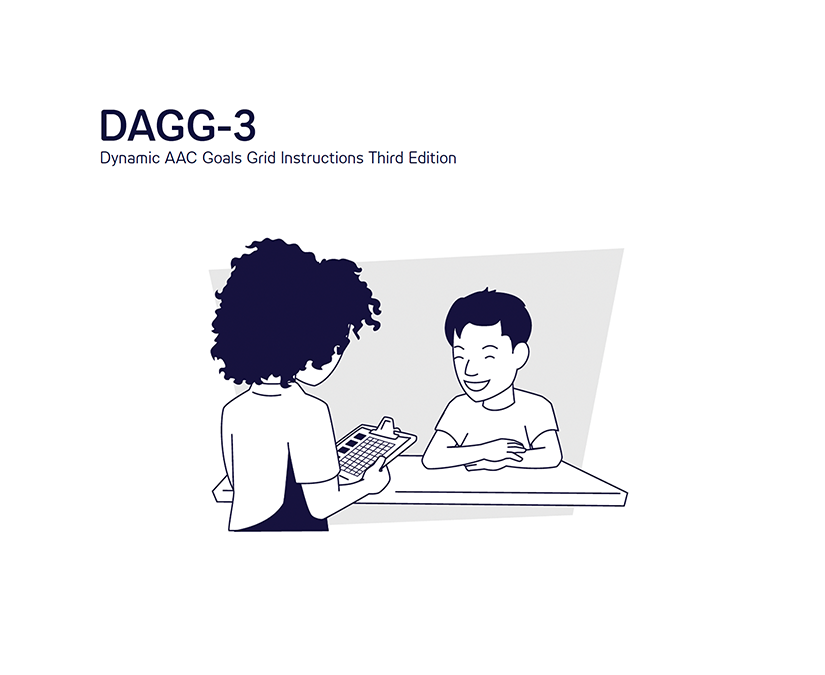Your cart is empty
DAGG-3
Design an intervention plan for those using augmentative and alternative communication with DAGG-3, short for Dynamic AAC Goals Grid (edition 3). This tool helps speech-language pathologists collaborate with their patients’ support teams (such as educators and family members) to assess their current communication abilities. It then guides SLPs in choosing and tracking appropriate AAC goals. DAGG-3 can be used for all ability levels – from early learners to more advanced communicators. Each goal includes a related activity, in addition to a clear path for improving communication skills. DAGG-3 is available free of charge.
How do I get this?
- Overview
- Resources
What is DAGG-3?
A free assessment tool to help professionals develop and progress through AAC goals for communicators of all ability levels.
Why use it?
DAGG-3, short for Dynamic AAC Goals Grid (edition 3), is a tool designed for speech-language pathologists to assess a patient’s current communicative abilities, then develop a set of goals to help them improve their communication skills and track progress.
What is included?
DAGG-3 consists of a set of step-by-step instructions to help professionals understand and use the tool, in addition to the assessment tool itself, which can be filled in online or downloaded to print. Each DAGG-3 goal offers a corresponding activity to help a learner grow their communication skills.
How do I use it?
DAGG-3 provides detailed descriptions of all ability levels to help SLPs collaborate with a support team in deciding which goals fit the communicator best. Based on those ability levels, there are recommended goals for each competency area to help improve communication independence.
What resources are included with DAGG-3?
The Dynamic AAC Goals Grid is a comprehensive assessment tool for SLPs that comes with step-by-step guidance, related activities, and skills tracking.
Instruction guide
DAGG-3 comes with a comprehensive set of step-by-step instructions to show SLPs how to: identify a communicator’s ability level, review goals, identify competencies, determine support for each goal, identify implementation and teaching techniques, use practice activities, and fill out planning and progress reports and summaries.
Assessment and planning tool
DAGG-3 consists of an assessment grid to help measure linguistic, operational, social, and strategic communication competency. It also includes an implementation chart for planning and measuring goals progress, plus a progress summary.
Related activities
Each linguistic, operational, social, and strategic communication goal comes with a related practice activity to help SLPs plan and track learners’ skills at every level of communication.













